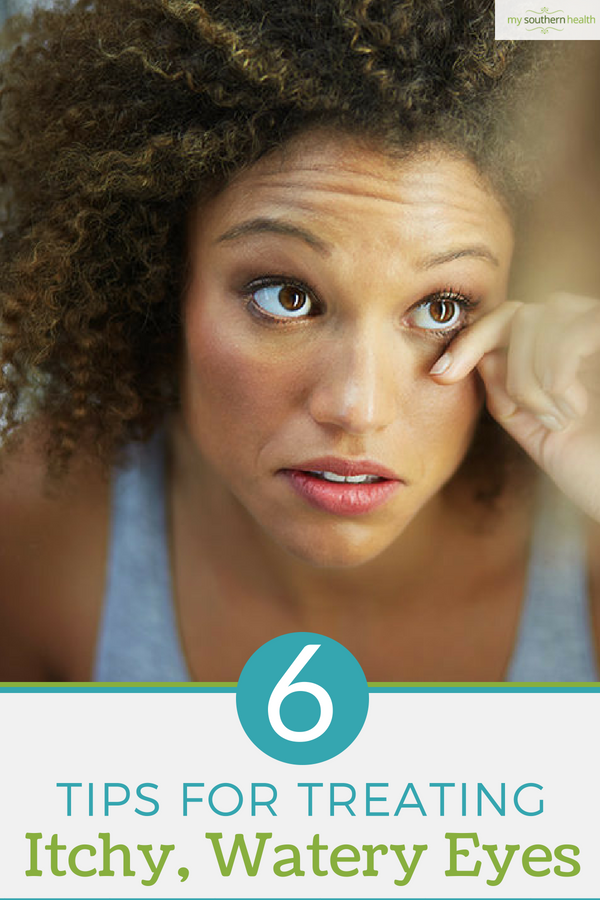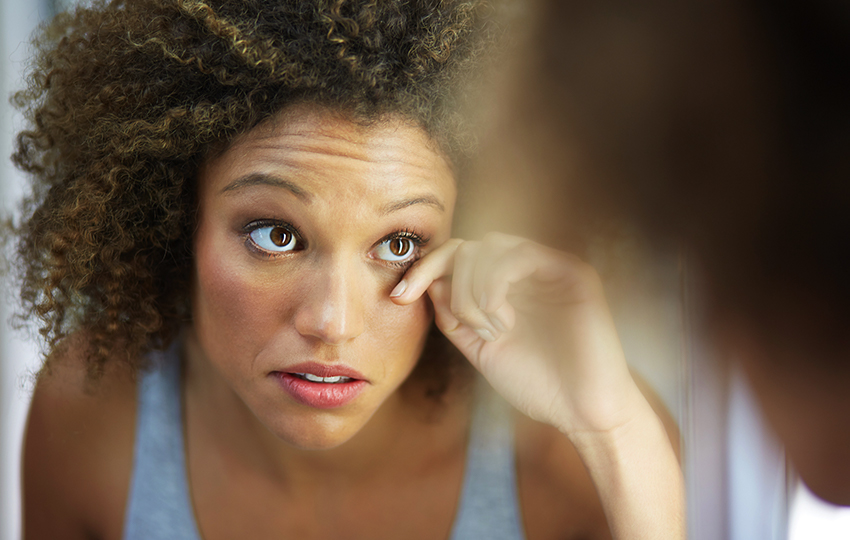With trees budding and flowers blooming, spring has sprung in the Mid-South. And it can bring some folks to tears — but not because of the beauty.
The season can be a bane to your peepers if you suffer from eye allergies. If you have itchy eyes during this time of the year, take note of these tips from Christine Rust, M.D., an ophthalmologist at the Vanderbilt Eye Institute.
Stop the itch.
If the spring season leaves you with red, itchy eyes, reach for some over-the-counter allergy drops like Alaway or Zaditor to get relief. These drops have the antihistamine Ketotifen. “Try to start them around two weeks before your symptoms usually start,” Rust said. “Don’t fret if you haven’t started using them yet. Just know that it takes some time to get the full relief.” For the next season, she recommends putting a reminder on your calendar.
Turn off the waterworks.
This might sound counterintuitive, but watery eyes call for artificial tears. That’s because if your eyes are watery, it can actually mean that your eyes are parched. “The lacrimal gland will overcompensate and make more tears when it feels the eyes are dry,” Rust explained. “Using the artificial tears can decrease the amount the eyes water and help keep them from getting dry.”
Rust recommends Systane or Refresh and to opt for preservative-free drops: “Preservative-free drops can be used as many times as needed during the day, but the artificial tears with preservatives can only be used four times a day.” If you have both itchy and watery eyes, you can use your antihistamine drops and artificial tears. Just wait five to 10 minutes after using your allergy drops and then use the lubricating drops. Rust recommends a regimen of allergy drops twice a day and artificial tears up to four times a day.
Watch out for this trap.
Although you might be tempted to grab an over-the-counter eye drop that’s designed to “get the red out,” Rust cautions against these. “They work well in decreasing eye redness, but once they are stopped, they can cause a rebound effect and increase eye redness,” she said. “This starts a vicious cycle and an addiction to the drops to keep your eyes white.” Artificial tears will help combat redness without the rebound effect.
Be mindful at work.
The combination of seasonal allergies and long days at work can further wreak havoc on your eyes. “Looking at a computer or phone can cause our eyes to dry out faster,” Rust explained. “Plus, when you’re concentrating, your blink rate will decrease, further drying out your eyes.” She recommends keeping artificial tears handy at your desk and giving your eyes a five- or 10-minute break every hour.
Protect your face.
A spring breeze might feel refreshing, but it can also kick up pollen, dust and other eye irritants that can cause itching and watering. When outdoors, protect the windows to your soul with sunglasses and a wide-brimmed hat. Showering at night before bed can also help mitigate the transfer of pollen to your pillow and reduce itchy eyes at night and in the morning when you wake.
Talk to your eye doc.
If you’re using artificial tears three to four times a day and still not getting relief from runny eyes, or if itchy eyes continue to plague you despite the use of over-the-counter allergy drops, talk to your ophthalmologist for additional solutions like prescription drops.


The Vanderbilt Eye Institute assesses and treats a variety of conditions at various locations in Middle Tennessee, including Hendersonville.

